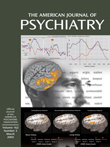The Role of Peritraumatic Dissociation and Gender in the Association Between Trauma and Mental Health in a Palestinian Community Sample
Abstract
OBJECTIVE: This research focused on gender-specific trauma exposure and mental health symptoms among Palestinians living in conditions of military violence. It also examined the gender-specific role of peritraumatic dissociation in moderating the association between lifetime trauma and mental health. METHOD: A random sample of 311 Palestinian women and 274 men ages 16–60 years from the Gaza Strip participated. The subjects were asked about lifetime trauma and peritraumatic dissociation during their most severe traumatic experience. Mental health was indicated by total scores and diagnostic variables of posttraumatic stress disorder (PTSD), anxiety, mood (depression), and somatization disorders. Symptoms of hostility were assessed as a total score. RESULTS: The women reported a lower level of lifetime trauma than the men, but exposure to trauma was associated with PTSD among both genders. Exposure to lifetime trauma was further associated with anxiety, mood, and somatoform disorders only among women but not among men. No gender differences were found in the level of peritraumatic dissociation. Analyses on moderating effects showed that peritraumatic dissociation made both men and women more vulnerable to symptoms of hostility and men to depressive symptoms when they were exposed to lifetime trauma. CONCLUSIONS: The results are consistent with previous studies in more peaceful conditions: men experience more traumatic events, whereas exposure is associated with more severe psychiatric disorders among women. Peritraumatic dissociation as an acute response to trauma constituted a risk for mental health symptoms in both genders.



